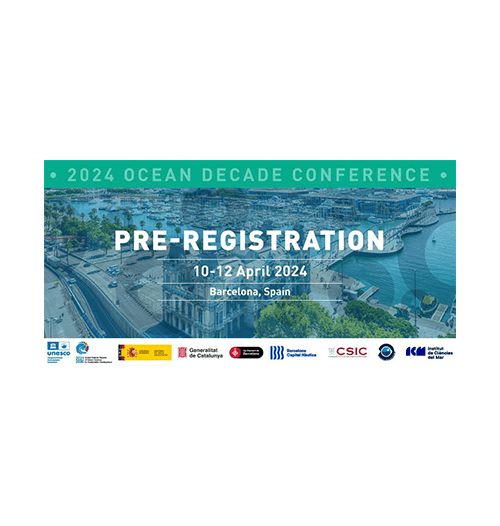2024 Ocean Decade Conference
Home | Events | Policymakers | 2024 Ocean Decade Conference

Barcelona, Spain, 10-12 April 2024.
Pre-registrations are open for the Ocean Decade Conference will occur from 10-12 April 2024 in Barcelona. Hosted by Spain and co-organized with UNESCO’s Intergovernmental Oceanographic Commission (IOC/UNESCO), it will gather governments, decision-makers, and others to discuss progress and priorities for the future of the ocean. The conference will cover the 10 Ocean Decade Challenges, and sessions will present science solutions for sustainable development.
To register, please visit the official website.
The conference will revolve around the 10 Ocean Decade Challenges and aims to offer a collaborative, inclusive and interactive space for learning, networking, and building partnerships. It will serve as a platform for discussing the results of the Ocean Decade Vision 2030 strategic ambition-setting process, which includes a set of white papers identifying future priorities for the Ocean Decade and help generate the necessary knowledge for science-based solutions to global challenges such as climate change, food security, biodiversity conservation, a sustainable ocean economy, pollution, and natural hazards.
Heads of State, UN agency leaders, and representatives of industry and philanthropy will make commitments and announcements during the high-level opening session on the morning of April 10. A plenary session will also discuss the foundational elements of success for the Ocean Decade.
The conference will feature four thematic sessions based on the Ocean Decade Challenges, including a mix of plenary and parallel sessions that present the results of the Vision 2030 process and science solutions contributing to sustainable development.
The Ocean Decade conference will also showcase partnerships and provide a platform for partner announcements. The high-level closing session on April 12th afternoon will highlight the primary outcomes and a vision for the Ocean Decade in 2030.